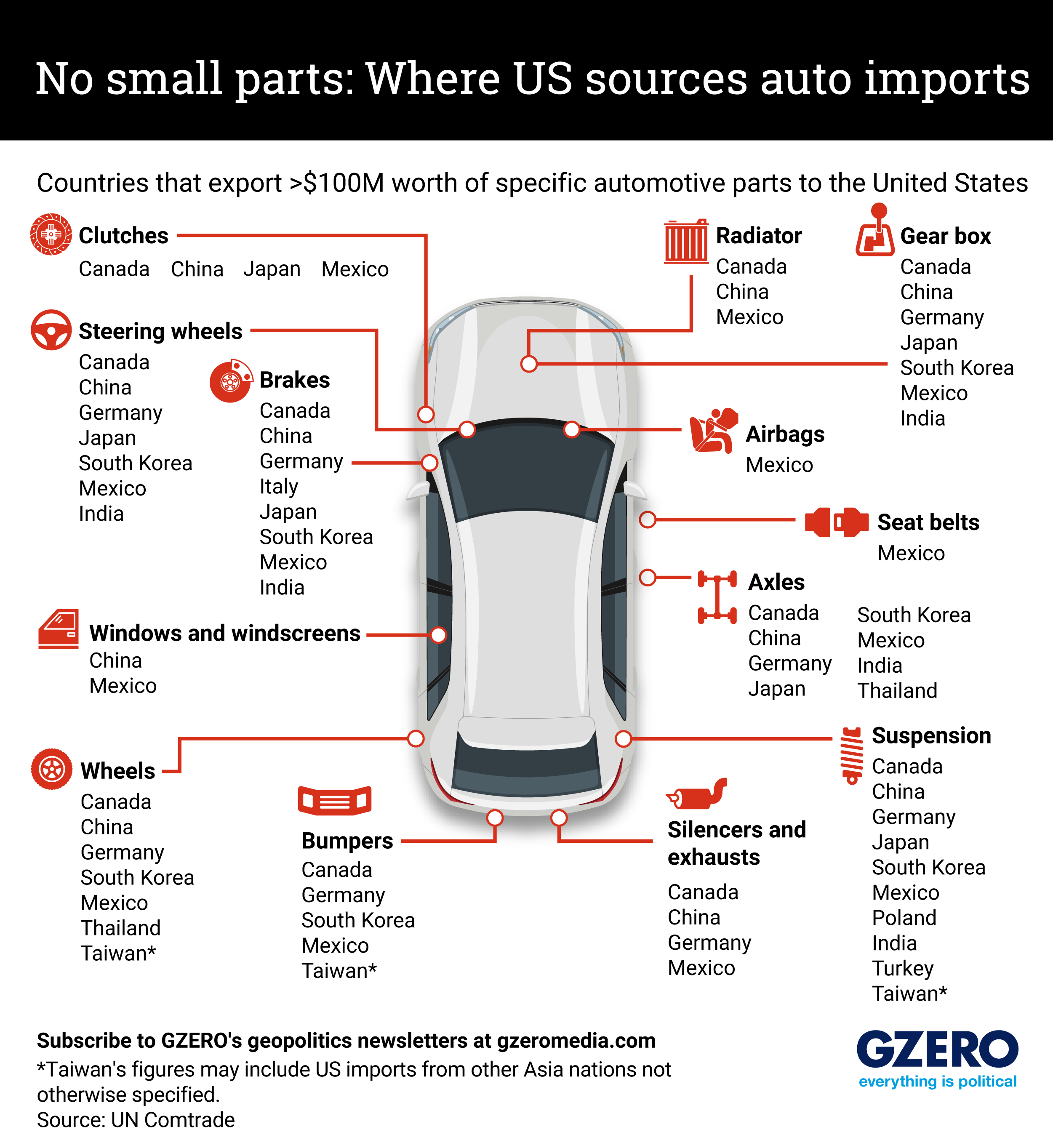Paige Fusco
As part of the broad suite of tariffs that he imposed on April 2, US President Donald Trump introduced a 25% levy on all auto parts entering the United States.
No matter the part, US automakers import huge amounts of each vehicle from abroad. The United States, for example, purchased $3.3 billion worth of brakes from Mexico and $2.8 billion of silencers and exhausts from Japan last year.
This chart excludes some of the mechanics of a car, such as engines, many of which are also imported from abroad. In fact, not a single car currently available in the US domestic market is 100% American-made, according to the National Highway Traffic Safety Administration. So, unless US parts manufacturers can plug the gaps, car companies are on the road to higher production costs.